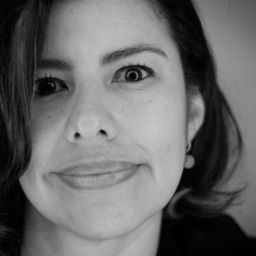
Leticia Pérez Castellanos
Sessions in which Leticia Pérez Castellanos participates
segunda-feira 6 junho, 2016
Sessions in which Leticia Pérez Castellanos attends
domingo 5 junho, 2016
Digital installations and interventions have been seen as a promising ways to support and foster dialogue in museum exhibitions. How does this potential translate into practice and does it enable reflexive and critical approaches towards heritage-making? This session aims to explore how digital installations and interventions in the context of museum exhibitions envision the notion of the ‘dialogic museum’. It particularly aims to articulate and problematize the role of digital in...
"What does heritage change?" is a multifaceted question to which the answer(s) are in primary respects related to real-life negotiations among different groups of citizens, cultures, races, ethnic groups, sexual identities, and social classes about received, official and/or widely accepted or accomodated intangible attributes, cultural traditions, historic monuments, buildings, and other transmitted or revived historical legacies. Heritage designated by and for whom, for what motivations, an...
segunda-feira 6 junho, 2016
Le patrimoine fait aujourd’hui l’objet d’attentions autant que d’agressions et de destructions. Cela peut s’expliquer par les difficultés de son identification ou de sa conservation. Cela peut plus profondément s’expliquer parce que, dès le départ, il célébre un événement ou conserve une mémoire qui peut être ou devenir une source de dissenssions et de conflits politiques. Enfin, sa reconnaissance suscite des gains économiques pour les uns mais des pertes pour les autres. Mais peut-être...
terça-feira 7 junho, 2016
Heritage has multiple, concurrent origins. It is performed and produced by individuals, groups and organizations, or institutions on various scales. It is a transformative process and thus closely connected to the transitional. In heritage, transitionality may be usefully conceptualized under the rubric of the liminal, which at its core anticipates change and transformation, structure-agency relationships, affect, and human experience—all significant issues in recent theoretical debates in th...
The Canadian Museum for Human Rights opened to the public in September 2014. Yet this "first museum solely dedicated to the evolution, celebration and future of human rights," met serious criticism from a variety of stakeholders before it even opened its doors. These stakeholders included Indigenous and Ukrainian communities, anti-poverty activists, feminists, gay rights activists, and disability advocates who questioned some of the museum's key curatorial choices in framing issues of righ...
To date, very little literature explicitly explores the relationships of museums and heritage to historical consciousness, despite the overlapping concerns shared by these respective fields. This roundtable addresses the subject of museums as sites of historical consciousness by reflecting on a recent book project. Museums as Sites of Historical Consciousness: Perspectives on Museum Theory and Practice in Canada (working title, UBC Press, 2016) examines (1) ways that museums create and sha...




